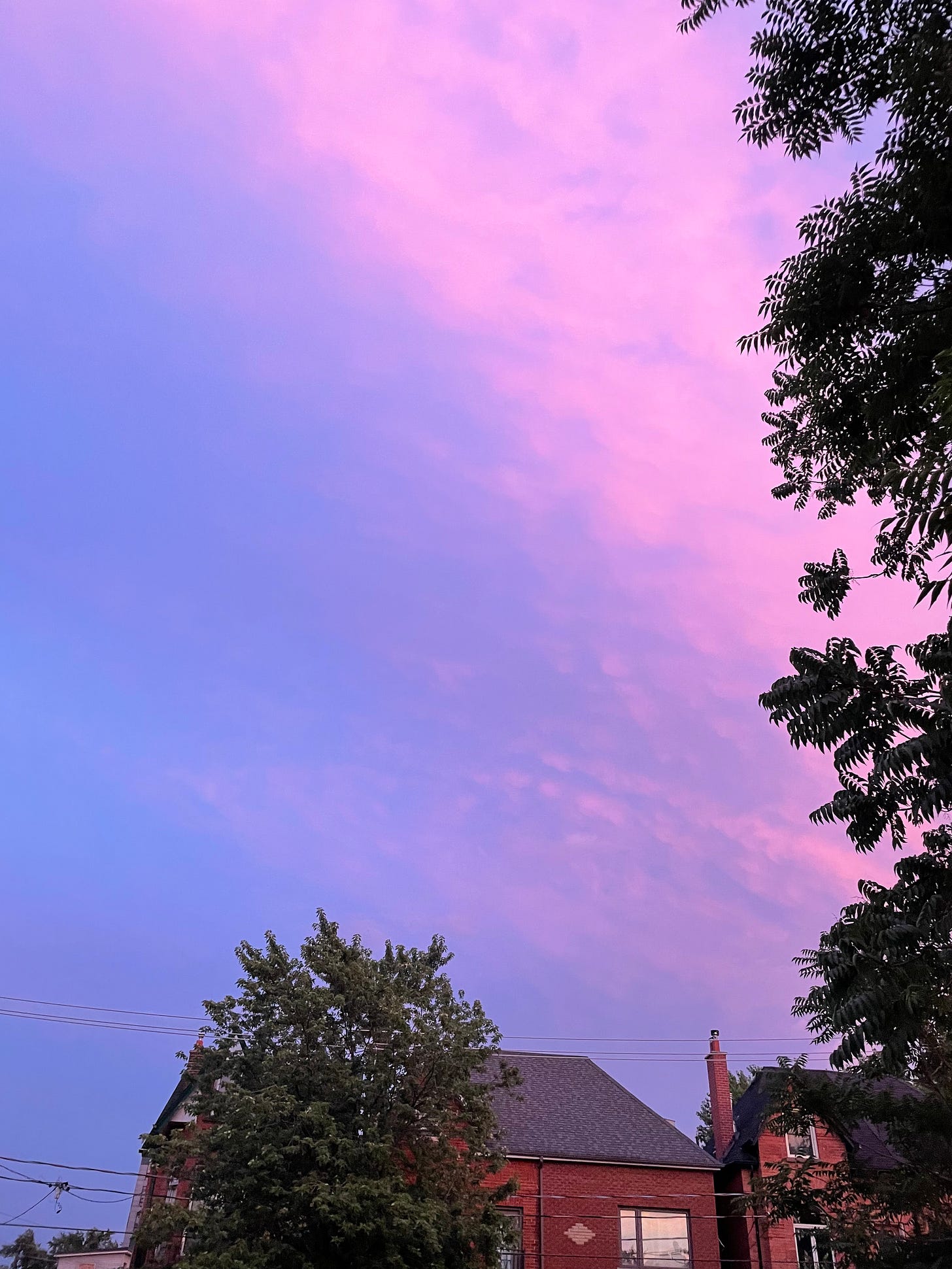Writing as a Form of Therapy
“Writing is a form of therapy; sometimes I wonder how all those who do not write, compose or paint can manage to escape the madness, the melancholia, the panic and fear which is inherent in a human situation.”
Graham Greene
Hi friends,
I’ve been in an extended period of turbulence regarding my living situation. I haven’t had a place to call my own since April. I’ve been on the road, but it’s not as romantic as Jack Kerouac would have you think (nor as romantic as I thought it might be as a 15-year-old reading that book). To be sure, I’ve had some really great places to land: friends and family have let me take refuge in their homes, no questions asked. I have yet to settle, and it’s still up in the air as to where I’ll be (and the current insanity of the New York housing market is not making my task any easier). My goal is September 1st. I found somewhere, and it seemed to be a sure bet, but then I got some news that I may not be able to move in until December.
Through all of this, I still show up for my morning pages. They are a touchstone I reach for to keep me sane. Currently, I’m using a smaller notebook than I usually do. I do not chastise myself for this. The practice of morning pages is a part of Julia Cameron’s classic book on creativity, The Artist’s Way used by artists worldwide to help them move through the inevitable creative blocks that come up. She encourages her readers to get words on paper each day. Fill three pages, she says. It doesn’t matter what’s in them; let it be terrible, she says. Stream of consciousness is encouraged. This is a practice I started doing in 2016 after I found my way to her book - in search of anything and everything that might heal me in the wake of a PTSD diagnosis and multiple near-death experiences.
When I first read it, I had vague memories of my mother going through the 12-week process when I was a child, filling her own notebooks and taking herself on artist dates (usually with me in tow). This is a process I’ve now done myself multiple times to varying degrees of success. Over the past six years, I’ve filled pages and pages and many, many notebooks with my words. I take out my pen and paper before I do anything else (as advised by the modern-day patron saint of creativity, JC). I write a gratitude list which, depending on my mood and the measure of existential dread I’m experiencing upon waking, either flows easily or drips out slowly. Then I set about the pages.
I have, of course, gone through periods in which I haven’t done my morning pages. But in this nomadic period of my life, each week in a different bed, the constant has been the pages. Have I written anything of great repute? Certainly not. Is anything even vaguely suitable for this newsletter? Also no. But as Graham Greene puts it: “Writing is a form of therapy.” I’m almost certain that if I didn’t go to the pages each morning, no matter how difficult it is to show up to or how little I feel I have to say: I probably would have gone (more) mad than I already am. The pages help me to make contact with the state of my inner world and escape the madness inherent in a human situation, if only for a brief moment.
I think about what my morning pages must say from the height of the pandemic. I spent 12 straight weeks cooped up with my flatmate at the time. We both had Covid for what felt like an eternity. The UK government asked me to shield myself as an “extremely vulnerable” person. This meant I was not to leave the house and, according to them (which I will never get over as long as I live), “open a window if I need some fresh air”. The amount of time I complained to the pages about whether or not my flatmate said good morning to me, the noise of the overground train outside my window and how my sourdough bread wouldn’t rise probably fills a whole notebook.
I think about what my morning pages must say from 2016. It was the year after my transplant, the year I had a rejection episode and nearly died (again), the year Trump was elected, and the year I also spent some time couch surfing for different reasons than my current conundrum. That year I think the pages were most likely filled with images from night terrors and complaints about my then-strained relationship with my mother.
I have always kept some form of a journal, though inconsistent, and it’s always helped me to make sense of my relationship with the world. The pages promise increased access to creativity, Cameron writes. Sometimes it really doesn’t feel that way. But what it does guarantee for me is a better mood and a brighter outlook, which I’ll gladly take (for now).
The simplicity of the pages is a place of refuge for so many. They allow people to show up as they are, with no goal in sight beyond the page number and the words: for much of The Artist’s Way process, you’re instructed not to look at your pages. In a world where we all have ridiculous expectations for our productivity, there is something so freeing about the pages. If you’re looking for a place to go each morning before the outside world enters your consciousness, may I suggest taking to a notebook and writing out your subconscious waste? They’ve done wonders to help me manage that panic and fear Greene refers to, even if they’ve yet to help me produce a novel.
Thanks for being here,
Nora x





